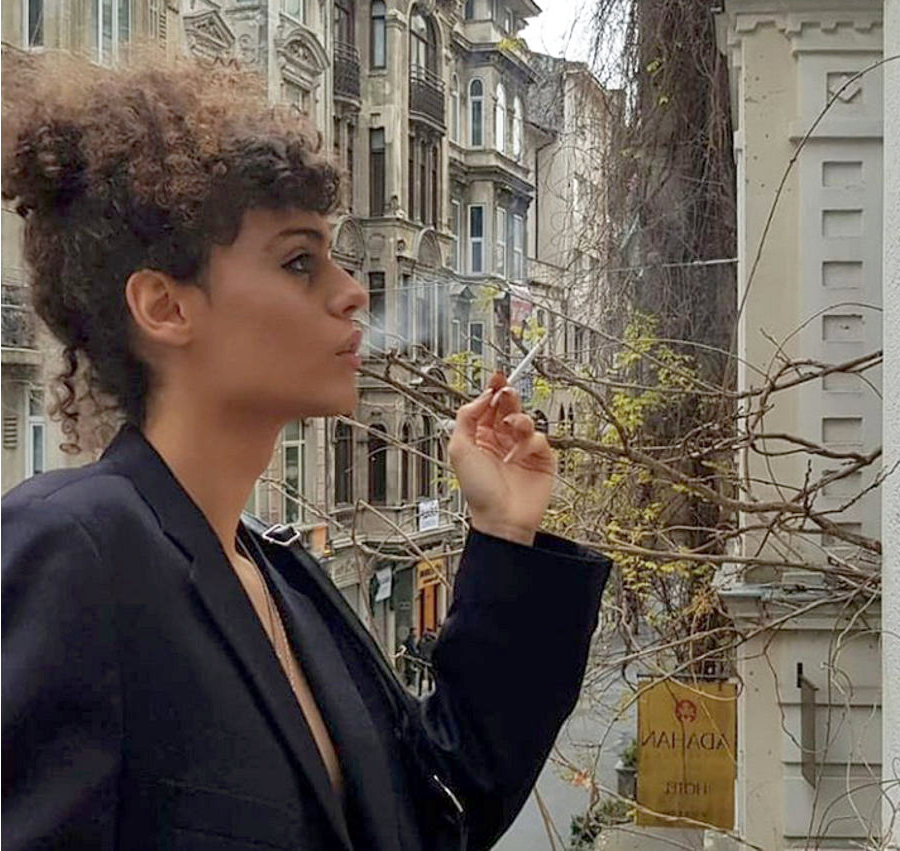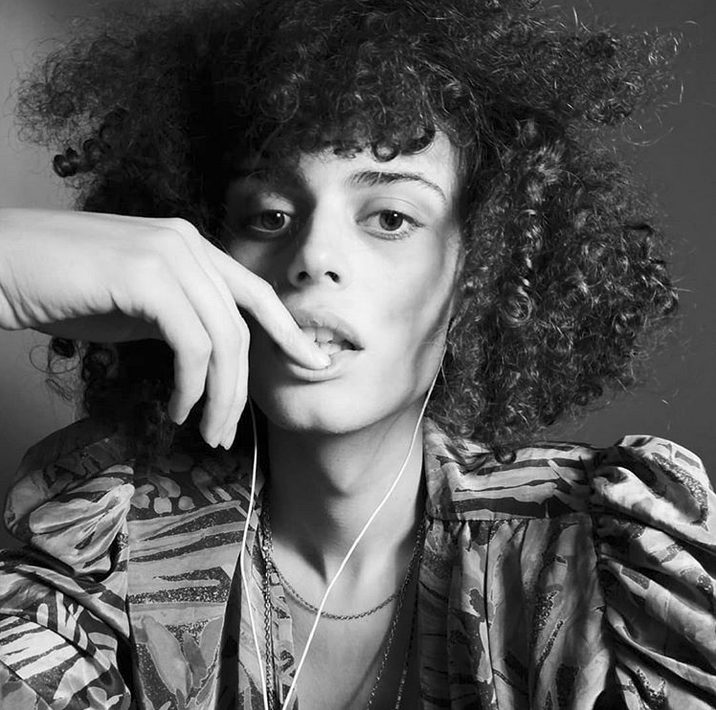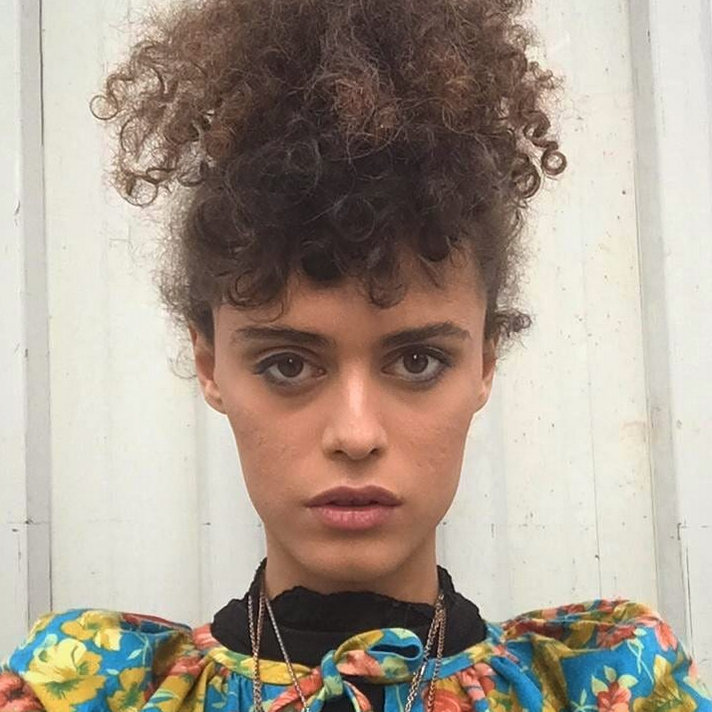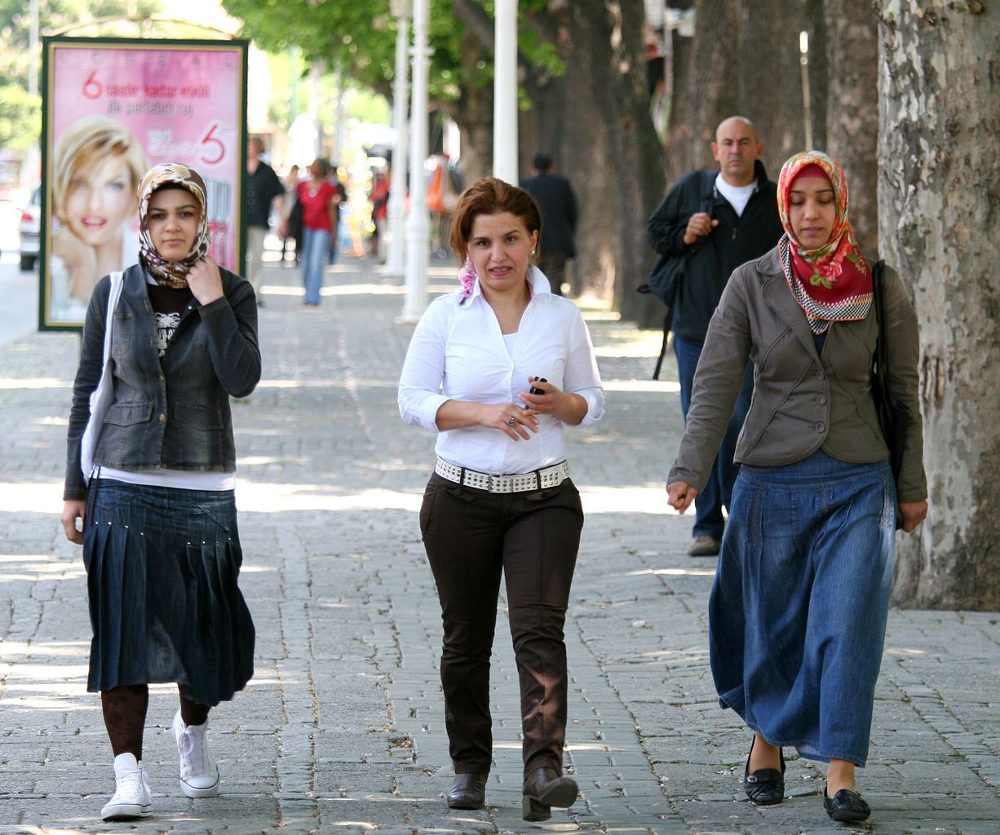ANKARA, Turkey (ViaNews) – LGBTI groups in Turkey have reportedly been trying to survive hate murders, abuse, rape, and inequality in what reportedly is a very polarised society. A society in which moral understanding is dictated to be based on Sunni Islam by the government authorities.
LGBTI events are frequently banned without a logical reason in Turkey which reportedly shows the government’s indifference to accepting LGBTIs’ struggle for their personal freedom. The freedom of other suppressed subcultures are also in peril since the terms “educated” and “suppressed” have reportedly become synonymous in today’s far-right politics.
Nora Şenkal is an LGBTI activist and a trans woman. She lives in Izmir, Turkey, and is studying American Culture and Literature at university. She identifies as a woman.

How did you first become aware of your sexuality? (She corrects me here saying it is more of a struggle than an awareness) How did you win your struggle?
What I understand from “becoming aware” is probably a bit different than how other transgender people would describe it. It seems to me that there is such a sexist perspective that actually we don’t have to “become aware” of anything we are just what we are. It is like challenging something and being victorious. What did I beat, what did I achieve? You can make a statement when you defeat sexism. It’s something you’ve always known, but you don’t name/categorise it because when you do it’s irrevocable. When I confronted my fears and said, “no problem, I’m willing to risk it” then I came out as a trans person.
What kind of fears?
Dozens of trans women are killed every year. Even if you’re not killed, you might be exposed to violence. You can’t rent a house, you can’t get a job. There is a very serious social marginalization and this has given me such a serious fear.
Most people have a fear of surgery. I had too. In fact, there is no connection between being a woman and having an operation, it depends entirely on the person’s own wishes.
But I couldn’t think of them separately back then, and I thought I wouldn’t open up as a woman if I hadn’t had the surgery. This was a taught norm, but now I don’t think I’m incomplete without surgery.
How did you get over that fear or gain that consciousness?
It is not a big deal actually I am a woman and I have a penis. Simple as that. However, there are some taught norms blinding us and preventing us from seeing this truth clearly. The more you get involved with activist organisations, the more you get conscious of these things and start to see things clearly. Then you realize and say “oh how did I miss that point”
In this way, you somehow manage to defy the default logic that bodies are objects or that bodies are what define our sexuality thus identity.
Yes, why do we assign a sexual orientation to bodies?

How did you get over your fear of surgery?
At first, it was the thought that I would not ever have a functional vagina but actually, that is outdated information. There are improved methods in medicine. It is pretty similar to other operations you take painkillers so it is not as scary as you might think.
What do you do? What was your first acquaintance with discrimination at work?
I’m not currently employed. I worked in a coffee shop, a bar and did surveys. I think the best experience I had was when I was working in a bar. Customers were usually my friends and I was being myself. I was not really open when I was working in the coffee shop as I was in sort of a search for identity or maybe not identity but something.
Some things weren’t clear in my head while I was working in the coffee shop or working as a surveyor. These things could hardly be spoken. So I didn’t tell anyone as I wasn’t sure what kind of reaction I would get. It was like a defense mechanism for me. I was mostly wearing gender-neutral clothes, but I wasn’t acting in accordance with the “social gender performance” back then yet. When I started working in the bar I was among free-minded people.
What are your future goals after university or do you think they will be shaped by the outside world?
Surely that attitude will shape my professional life but I haven’t decided on anything yet. Media or fashion related jobs probably, since the nature of this type of job offer a freer work environment.

Can you describe what discrimination means to you?
It is an umbrella term but I can say that it is the hierarchy of not including some people. Because some authorities get to decide that some of us are more advantageous than others while some are not. I cannot discriminate you on a community level I can do it individually, but it would not have a social equivalent
Can you give me a personal example?
Somebody on Tinder, the dating app, told me that I should not fool people with my photos. After having found out that I was a trans woman he said “ok bro good luck” You see how the addressing tone suddenly changes when some people find out that you’re actually a trans woman. You are just a man dressed as a woman to him. Trans women are a reality, yes they exist you bear that in mind and ask in advance then!
I opened up to my parents at 19 and they took it well but until then it has never been spoken within my household. Opening up is not the right actually I’d rather say struggling and defeating.
Have you ever been forced to see a psychiatrist because of your sexual orientation? It is a common practice among Turkish parents whose children come out as gay or lesbians.
No, but I was told that it would be better for me. They wanted to know the reason behind. Therefore they were looking for something like a hypnosis therapy to learn more about my traumas. For them, it was a problem and it had to be sorted out through medical help.
They are conservative people but they accept that everybody has their own free will to create themselves.
Are you currently involved in LGBTI groups and if you are how so? What does make you most proud of about being a part of them?
We had an LGBTI group called LeGeBIT in the university. I’ve learned everything I know right now thanks to them. They were really careful with the terminology. I knew even more things back then but that group did not last long. Then we founded Levander which is another student organization based in Ege University and it is still actively working.
What do you think LeGeBIT and Levander do best? What makes you proud to be a part of them?
LeGeBIT was a great experience for me in terms of the ways they use the terminology, very politically correct. In such a way that no subculture would be hinted at with indirect derogatory remarks, not even in a humorous way. It was Queer 101 for me (laughs). We do not pay much attention to political correctness like we used to do when we talk between us. But only after that fundamental education you can start to deconstruct.

Do you find yourself close to the feminist movement as a woman?
I didn’t before but when I think about it now I ask myself “Is there a change possible without us being involved?” So, I’m slowly getting there. I haven’t done anything about this yet. I’m not in touch with women’s collectives but it is in my future plans.
Do you believe it’s inclusive?
No, it’s not.
I think we can’t reach each other because of the dynamics of the period. 70s, 80s and 90s were more political, people used to be in the streets more to make protests and express their objections. Nobody tries and fights against these problems or cares whether it’s inclusive or not anymore. All they care about is to give a declaration about their homosexuality or whatever they identify as and pairing with Pride. What is the message of the movement, what is the struggle? These are the important questions which they are not interested in.
The LGBT + movement stands very well against moralism, and I think there is a certain part of it that does intersectional activism very well. For instance, 30-40 people joining the march do not belong to a specific group. I am proud to say that there are certain clusters, their struggles are justified and foundations are intact. Not the kind that excludes some people.
The mechanism of disclosure is a useful and necessary mechanism in the LGBT + Movement but its essence is being disrupted nowadays.
Let’s say there is a disclosure of harassment or emotional violence, but you don’t know the background of it, how the process works.
There is this rationale of “oh what a terrible person I’m unfriending him immediately” and this is applauded.
Would you leave Turkey if you had the chance?
This struggle is what I like and value. I wouldn’t emigrate to another country even though I speak a second language. I believe there is discrimination in every country.
For the Turkish government, you’re as much woman as your vaginal depth. Some courts require a minimum of 8 cm vaginal depth in order to legally define you as a woman. Hospitals do it as well. Some judges can give you that ID because the law is not very clear but some don’t as they want to know about your vaginal depth. You can’t call the hospital and get information about the execution of the gender transition process. Some judges require the person to have an operation in order to give you the identity as a woman. Whatever mechanism the State has, all of them are phobic. Something that will comfort us would be a change in the education system.
I’m worried about the next generation since everything is under State control. I wonder how they will obtain knowledge of certain things.
Do you believe in free love?
I want to but it is not real. In fact, we are not free how can love be? Somebody romantically appoints you to a position and expects something from you. What we call relationship is really a heteronormative thing. Dating with even the most activist person in the world would follow a heteronormative course because one side always takes over. However, love doesn’t have to be reciprocal.






